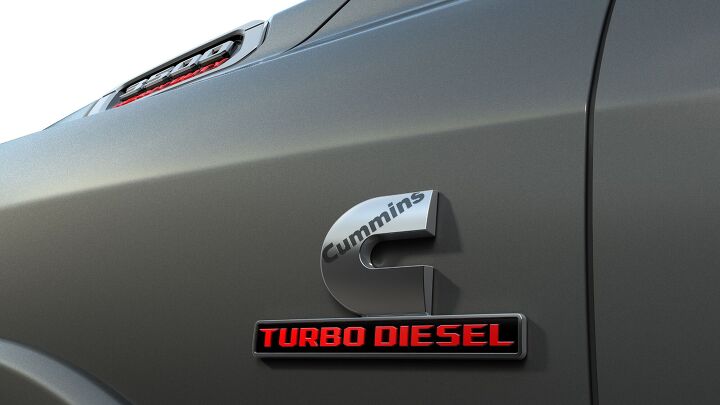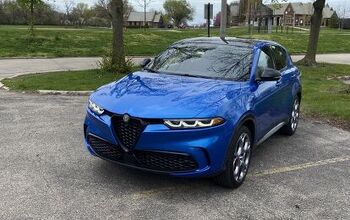Cummins Agrees to Pay $1.6 Billion in U.S. Emissions Fines

The United States Department of Justice has accused Cummins of installing emissions defeating devices on diesel motors and decided to fine the company $1.67 billion for violating the Clean Air Act. Cummins has agreed to pay the fine in principle, which Attorney General Merrick Garland said would resolve any allegations that the "company unlawfully altered hundreds of thousands of engines” to circumvent emissions regulations.
“The types of devices we allege that Cummins installed in its engines to cheat federal environmental laws have a significant and harmful impact on people’s health and safety,” Garland stated, adding that "preliminary estimates suggest that defeat devices on some Cummins engines have caused them to produce thousands of tons of excess emissions of nitrogen oxides."
The Justice Department has alleged that Cummins installed devices that allowed the engines to pass emissions during testing. But said those same devices allowed the vehicles increased performance during regular use — increasing pollution and violating the Clean Air Act.
Claims state that Cummins may have installed the units on roughly 630,000 motors equipped to Ram 2500 and 3500 pickups from the 2013-2019 model years. Another 330,000 taboo emissions controlling devices were also said to have been installed on newer diesel pickups built through 2023. It apparently performed the same function but was of a different design as the unit installed on older trucks.
Cummins is expecting to take a $2 billion loss this quarter from the fallout (which includes recalls) and will undoubtedly continue spending through 2024 as it settles the fine issued by the DOJ. But it has not admitted guilt, nor will it need to now that it has agreed to pay off the government.
"The company has seen no evidence that anyone acted in bad faith and does not admit wrongdoing," Cummins stated.
Environmental Protection Agency Administrator Michael Regan praised the Justice Department’s actions. The EPA head stated that "vulnerable communities are more likely to reside near highways where these harmful emissions are concentrated, making this agreement critical to advancing our environmental justice agenda."
Viewed from an emissions standpoint, it’s hard to make a case for diesel motors. We can visibly see them emitting more pollution than vehicles equipped with gasoline engines, though Europe had previously championed diesels as the cleaner option and even subsidized them due to diesel emitting less carbon dioxide. Still, particulate matter output tends to be significantly higher and has been attributed to exacerbating respiratory illnesses.
Things get a little more complicated when you take a wider view of the issue, however. Diesel engines tend to be highly efficient, resulting in lower average fuel consumption, and are typically longer lived than their gasoline counterparts. Simply keeping an older vehicle around usually results in less pollution than supplanting it with a newer model that happens to be more efficient. Physical waste is still waste and building new vehicles (including all-electric models) results in additional emissions spewing out of the required factories.
While we are a far cry from claiming that diesels are clean, the issue is more nuanced than many would have you believe.
It may not even be possible for modern diesel motors to pass emissions anymore. Whenever I ask engineers why so many automakers have pivoted away from offering diesel motors, the answer usually involves how difficult it is for them to pass modern emissions requirements. This may even have contributed to the rash of emissions cheating we’ve seen since 2015, when Volkswagen was likewise faulted for installing defeat devices.
Companies spend a fortune developing engines and need to keep them in service for a while to recoup the expense. But that’s tricky when a motor that was compliant a couple of years ago and needs to remain in production several more years cannot meet emission standards as they change. This leaves the impacted manufacturers with a few options.
Businesses can neuter the motors in an attempt to appease regulators. But this annoys the customer base and diesel owners have already had it with Diesel Exhaust Fluid (DEF), restrictive exhaust systems, and modern particulate-sensing equipment complicating what used to be very simple powertrains. Businesses can also try to get around emissions testing and simply hope they don’t get caught. Ironically, with the exorbitant amount of money required to develop new engines, it may actually be more cost effective for large manufacturers to simply cheat and pay the fine later.
Cummins’ agreement in principle is with the U.S. and the State of California. The settlement is still subject to final approvals before everything can be squared away.
[Image: Stellantis]
Become a TTAC insider. Get the latest news, features, TTAC takes, and everything else that gets to the truth about cars first by subscribing to our newsletter.

A staunch consumer advocate tracking industry trends and regulation. Before joining TTAC, Matt spent a decade working for marketing and research firms based in NYC. Clients included several of the world’s largest automakers, global tire brands, and aftermarket part suppliers. Dissatisfied with the corporate world and resentful of having to wear suits everyday, he pivoted to writing about cars. Since then, that man has become an ardent supporter of the right-to-repair movement, been interviewed on the auto industry by national radio broadcasts, driven more rental cars than anyone ever should, participated in amateur rallying events, and received the requisite minimum training as sanctioned by the SCCA. Handy with a wrench, Matt grew up surrounded by Detroit auto workers and managed to get a pizza delivery job before he was legally eligible. He later found himself driving box trucks through Manhattan, guaranteeing future sympathy for actual truckers. He continues to conduct research pertaining to the automotive sector as an independent contractor and has since moved back to his native Michigan, closer to where the cars are born. A contrarian, Matt claims to prefer understeer — stating that front and all-wheel drive vehicles cater best to his driving style.
More by Matt Posky
Latest Car Reviews
Read moreLatest Product Reviews
Read moreRecent Comments
- Bd2 Lexus is just a higher trim package Toyota. ^^
- Tassos ONLY consider CIvics or Corollas, in their segment. NO DAMNED Hyundais, Kias, Nissans or esp Mitsus. Not even a Pretend-BMW Mazda. They may look cute but they SUCK.I always recommend Corollas to friends of mine who are not auto enthusiasts, even tho I never owed one, and owned a Civic Hatch 5 speed 1992 for 25 years. MANY follow my advice and are VERY happy. ALmost all are women.friends who believe they are auto enthusiasts would not listen to me anyway, and would never buy a Toyota. They are damned fools, on both counts.
- Tassos since Oct 2016 I drive a 2007 E320 Bluetec and since April 2017 also a 2008 E320 Bluetec.Now I am in my summer palace deep in the Eurozone until end October and drive the 2008.Changing the considerable oils (10 quarts synthetic) twice cost me 80 and 70 euros. Same changes in the US on the 2007 cost me $219 at the dealers and $120 at Firestone.Changing the air filter cost 30 Euros, with labor, and there are two such filters (engine and cabin), and changing the fuel filter only 50 euros, while in the US they asked for... $400. You can safely bet I declined and told them what to do with their gold-plated filter. And when I changed it in Europe, I looked at the old one and it was clean as a whistle.A set of Continentals tires, installed etc, 300 EurosI can't remember anything else for the 2008. For the 2007, a brand new set of manual rec'd tires at Discount Tire with free rotations for life used up the $500 allowance the dealer gave me when I bought it (tires only had 5000 miles left on them then)So, as you can see, I spent less than even if I owned a Lexus instead, and probably less than all these poor devils here that brag about their alleged low cost Datsun-Mitsus and Hyundai-Kias.And that's THETRUTHABOUTCARS. My Cars,
- NJRide These are the Q1 Luxury division salesAudi 44,226Acura 30,373BMW 84,475Genesis 14,777Mercedes 66,000Lexus 78,471Infiniti 13,904Volvo 30,000*Tesla (maybe not luxury but relevant): 125,000?Lincoln 24,894Cadillac 35,451So Cadillac is now stuck as a second-tier player with names like Volvo. Even German 3rd wheel Audi is outselling them. Where to gain sales?Surprisingly a decline of Tesla could boost Cadillac EVs. Tesla sort of is now in the old Buick-Mercury upper middle of the market. If lets say the market stays the same, but another 15-20% leave Tesla I could see some going for a Caddy EV or hybrid, but is the division ready to meet them?In terms of the mainstream luxury brands, Lexus is probably a better benchmark than BMW. Lexus is basically doing a modern interpretation of what Cadillac/upscale Olds/Buick used to completely dominate. But Lexus' only downfall is the lack of emotion, something Cadillac at least used to be good at. The Escalade still has far more styling and brand ID than most of Lexus. So match Lexus' quality but out-do them on comfort and styling. Yes a lot of Lexus buyers may be Toyota or import loyal but there are a lot who are former GM buyers who would "come home" for a better product.In fact, that by and large is the Big 3's problem. In the 80s and 90s they would try to win back "import intenders" and this at least slowed the market share erosion. I feel like around 2000 they gave this up and resorted to a ton of gimmicks before the bankruptcies. So they have dropped from 66% to 37% of the market in a quarter century. Sure they have scaled down their presence and for the last 14 years preserved profit. But in the largest, most prosperous market in the world they are not leading. I mean who would think the Koreans could take almost 10% of the market? But they did because they built and structured products people wanted. (I also think the excess reliance on overseas assembly by the Big 3 hurts them vs more import brands building in US). But the domestics should really be at 60% of their home market and the fact that they are not speaks volumes. Cadillac should not be losing 2-1 to Lexus and BMW.
- Tassos Not my favorite Eldorados. Too much cowbell (fins), the gauges look poor for such an expensive car, the interior has too many shiny bits but does not scream "flagship luxury", and the white on red leather or whatever is rather loud for this car, while it might work in a Corvette. But do not despair, a couple more years and the exterior designs (at least) will sober up, the cowbells will be more discreet and the long, low and wide 60s designs are not far away. If only the interiors would be fit for the price point, and especially a few acres of real wood that also looked real.


































Comments
Join the conversation
So it’s all software. The poor wording of the first article is confusing talking about devices. Nobody seems to be going to jail and Cummins is saying they didn’t do anything wrong.
Like I said, this is an interpretation problem of the government regulations and a money grab by the government.